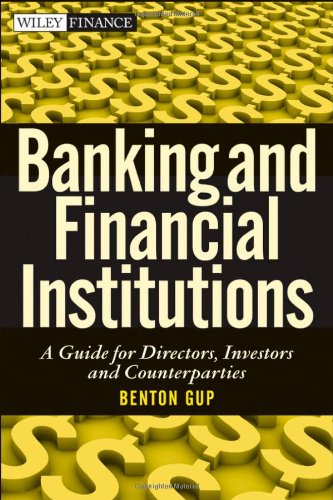I have readers all over the world.? Here is an example:
Hi Dave
I am a 25 year old from Pretoria, South Africa. I have been reading your blog for around 2 years and I thoroughly enjoy it (especially the book reviews). I might not agree with a few things you say, but it is rare that I don’t learn something while reading your work. I love how your personality shines through in your writing…a personality based on God.
I have had this fascination with finance and investing since I ran into a popular finance magazine here in South Africa around 2008 while stile in university. Since then I have been reading everything I could on business, investing and finance. I am also about to start training with a large wealth management firm in south africa to be 1 of their financial advisors. Training I am wholeheartedly looking forward to.
In all my reading, there is something I still struggle to wrap my head around, and that’s how to value Financial companies. You are undoubtedly the most informed person on financial company investing nd financials that I read. Hence my email: I was wondering if you could suggest a few readings for me to tuck into (preferably books) as I have found most of the things I have read only scratch the surface. Reading with maths that is not too elaborate.
I hope I am not asking too much.? Thank you in advance for any suggestions you might have, and I hope you keep up the good work on your blog.
Financial companies are difficult for several reasons:
1) The cash flow statement has almost no meaning.
2) It is very hard to know how much capital is needed to keep things going.? That data gets disclosed to the regulators, and not directly to stockholders.
3) It is difficult to know the riskiness of the assets that a financial company holds.
4) With complex financials, it is difficult to tell what the “run on the bank” risk is.
I will be reviewing a book on banks this month, but I have run into few books in my life analyzing financials.? It is a real hole in the investment literature.
Financial companies are valued off of their net worth, and their expected path of earnings.? Earnings retained, rather than paid out in dividends, or used to buy back stock, adds to net worth, and is new capital that can be used for growth.
The capital of financial companies can be divided in two: that which is required by the regulators for solvency purposes, and that which is free for deployment into new business.? With banks, look at the call reports to analyze the capital needs of subsidiaries.? With insurers, get the statutory reports.
To the extent you can, analyze the quality of assets owned.? Also analyze when liabilities may require cash, particularly if assets are financed by repurchase agreements.
Now over the last seven years, I have written a lot on financials, particularly insurers.? Here are the articles at my blog that would deserve attention:
A Summary of my Writings on Analyzing Insurance Stocks
A compendium of the best articles written prior to mid-2010.
Then there was the Flavors of Insurance Series.? In 12 parts, it went through the entire insurance space, explaining what make each area different.
Thinking about the Insurance Industry
Describes the changes that have happened since the financial crisis.? Bad financial models have been destroyed.
On Life Insurance and Life Reinsurance
Explains how life insurance is saturated but reinsurance is not.
On Complexity in Financials, and Insurers Specifically
Explains why complex financials are usually a bad investment.
Investing In P&C Insurers
Once you understand the model, many are simple companies, and easy to invest in.
Evaluating Regulated Financials
An attempt to explain to college students why financials are different from other companies.
On Insurance Investing
This seven-part series explained a wide number of factors in analyzing insurance stock investing.
Penny Wise, Pound Foolish
On some of the pathologies inside badly-run insurance firms.
Two Insurance Questions
On reserving and valuation questions.
On the Designation of Systemically Important Financial Institutions
Why Insurers, no matter how large, should not be considered a threat to systemic risk.? (Please ignore AIG — no other insurer was a major party in derivatives.)? Also see: On Risk-Based Liquidity, and Financial Regulation
On Captive Insurers
Explains some of the nuances of statutory reserving/capital, and why some insurers want to fuddle it.
Classic: Financials are Different
A piece from 2006 at RealMoney, describing how financials are different from industrial stocks.
That should give you a start.? There aren’t many books dealing with the intricacies of financial companies, and of what few there are they are written by the big four auditors, or the rating agencies, for their own purposes.? I don’t own any of them.
But what I have written, from that you can benefit.
 Many readers ask me for a good book on financial institutions, and this is a good one, if limited to depositary financials, not including insurance companies and asset managers.
Many readers ask me for a good book on financial institutions, and this is a good one, if limited to depositary financials, not including insurance companies and asset managers.
